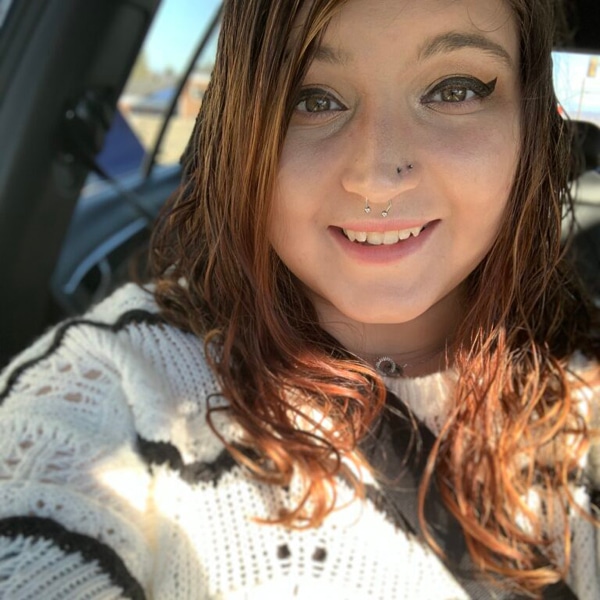It’s easy to see why Mikehla Duganieri was nominated as a Difference Maker. In just 3 years, she connected with over 1,000 individuals while volunteering with Crisis Text Line. She has also done work with community groups that deal with substance use and in local emergency departments where the effects of substance use are seen often. Read more about Mickehla’s story in the interview below.
1. Tell us about yourself and (if applicable) your organization? Where are you located and what is some of the work that you do?
I’m from North Huntingdon, Pennsylvania, and I was a volunteer Crisis Counselor for two years with an organization called Crisis Text Line. Crisis Text Line is a free, 24/7 support that can be accessed right from your fingertips. You can text “HOME” to 741741 to be connected to a trained Crisis Counselor.
2. What kinds of problems have you seen in your community as a result of the opioid epidemic?
I used to tutor a family whose father was addicted to opiates after having back surgery. You could tell that this family was struggling with everything – from education, access to housing, and even getting food. I’ve met a lot of individuals working in emergency departments who have struggled with opiate addictions as well, who wanted help but were unable to afford rehabilitation, or even seek a support system. I’ve helped several individuals through Crisis Text Line as well who were looking for support, and have been able to guide them through national groups such as SAMHSA. With Crisis Text Line, it is national support, so I’m not aware of where each individual was, but having a nationwide impact is absolutely incredible.
3. What have you done to help with the problems your community (or your organization) faces?
Personally, I was involved in a group called “Substance Abuse in Your Community” at Westmoreland County Community College in 2017, where I was able to have a booth available with information on the Crisis Text Line. I’ve also had various discussions and offered support to those who need help with substance abuse.
4. What motivated you to try and help people affected by addiction?
I see higher crime rates in our community with the opioid epidemic. My organization tries to educate the community by having public events.
5. What are some of the best parts about helping people who have been affected by the opioid epidemic?
One thing that I really enjoy about helping those who have been affected by the opioid epidemic is hearing their stories and watching a sense of relief come over them after they have gotten the heavy stuff off of their chest. It’s like a demon eating at you, and once someone talks about it, they look more relieved.
6. Is there a particular situation that sticks out in your memory related to the ways you’ve tried to make a difference?
I used to work in local emergency departments, and one day an older woman came in, barely able to talk because she was full of tears. I had asked if she’d like to step in a more private area to register because she was so overwhelmed, and she agreed. We started talking and I asked her the reason for her visit. She said, “I’ve been using Vicodin every day now, and all I want to do is die.” She had extreme suicidal ideation but was able to open up to me and discuss what was going on. We got her registered, and due to suicidal ideation, she was put into a room with NOTHING else in it. I talked with her nurse to see if I could bring her a coloring book, so she could distract herself, and the nurse agreed. Before I left her room, she said “You know, I’ve been doing this for a long time. In and out of emergency rooms and rehabs. You are the first person to treat me like a human being. Thank you.” That made such an impact on me and I think it did for her too. She was able to leave that night.



